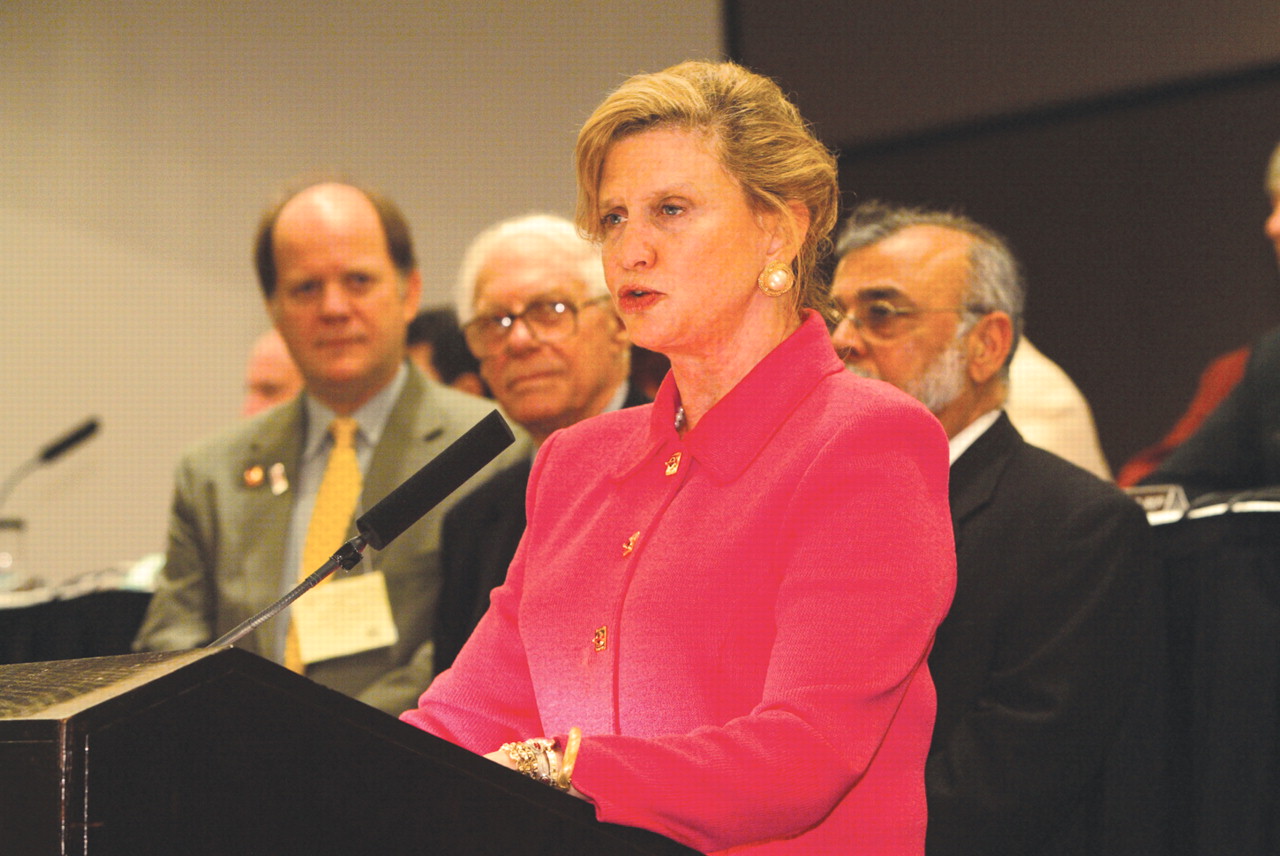Assembly Tackles Diverse Agenda at N.Y. Meeting
While the focus of the Assembly's meeting was on issues related to health care economics and the Assembly's functioning and role in APA, the representatives did take on a major clinical issue. They voted overwhelmingly to urge APA to drop the multiaxial system in the next revision of DSM.
Introduced by Roger Peele, M.D., the Area 3 representative on the APA Board of Trustees, the proposal notes, “Over the last two decades, the multiaxial system has not caught on. Medicare, Medicaid, and most commercial insurances, except under carveout circumstances, don't expect multiaxial diagnosing.” In addition, Peele emphasized, “There is no evidence that most practitioners make use of it when they are free not to.”
The Assembly voted to remove the multiaxial system from the diagnostic manual unless “clear evidence” emerges that the system has benefited patients with mental illness. The Assembly referred the issue to the Committee on Psychiatric Diagnosis and Assessment, a component of the APA Council on Research.
On the health care economics front, the Assembly voted to urge the APA Board to adopt a position statement emphasizing that the federal government should earmark the same percentage of the health care budget for mental illness and substance abuse services as the percentage it annually devotes to providing services to patients with other types of illnesses.
Introduced by Area 1 Deputy Representative Jeffrey Geller, M.D., the action paper noted that the government's funding priorities have for years shortchanged mental health services, and with states cutting their mental health budgets in recent years, services are further threatened.
The Assembly also voted to ask the representative from each of APA's seven Areas to identify a psychiatrist in each district branch within the Area who would represent that state on an APA Medicaid Advisory Group.
On other proposals, the Assembly voted to
approve a revised draft of the next edition in APA's practice guideline series, Assessment and Treatment of Patients With Posttraumatic Stress Disorder and Acute Stress Disorder. What is expected to be the final review of the guideline will be on the agenda of the Board of Trustees' meeting later this month. If the Board approves the guideline, part of it is scheduled to be published in the October American Journal of Psychiatry. | |||||
have APA advocate for giving psychiatrists the right to use evaluation and management (E&M) codes with all insurance claims, as can physicians who provide nonpsychiatric care. The proposal noted that regular use of E&M codes “will enable [psychiatrists] to describe more accurately the medical tasks [they] perform, while also removing disincentives to psychiatrists for the provision of medical and integrative treatment of patients with medical/psychiatric needs.” | |||||
discuss with the AMA the possibility of establishing a joint fund whose resources would be spent on rapid intervention in state scope-of-practice issues, such as legislation or litigation. | |||||
ask APA's Council on Medical Education and Lifelong Learning to develop an educational component on organized psychiatry and medicine that could be used by psychiatry residency programs. | |||||
pass a controversial action paper calling on the Board of Trustees and Assembly Executive Committee to appoint a committee to look at the governance structure of other professional organizations and investigate issues around making the Assembly rather than the Board the policymaking body of APA. The paper, introduced by representatives of the Texas district branch, maintained that such a power shift would attract new members and reduce governance costs, since money would not be spent on a large governing body that is “only advisory.” | |||||
defeat a proposal to hold APA elections every two years rather than annually as a cost-cutting strategy. The proposal also called for nomination of a four-candidate slate for the two highest offices, with the top vote getter becoming president-elect and the next highest becoming vice president. | |||||
back a change in the APA Bylaws so that the medical director rather than the APA president would be designated the chief executive officer (CEO) of the Association. The Assembly agreed with the paper's authors that acting as APA's CEO is “a fulltime job in itself,” making it impractical for the president, who serves part time for a one-year term, to serve effectively in the role. The Assembly asked the Board to initiate the process for making this change to the APA Bylaws. | |||||

Rep. Carolyn Maloney (D-N.Y.) is the recipient of a Speaker's Award from Assembly Speaker Prakash Desai, M.D. Behind Maloney are (from left) Assembly Speaker-elect James Nininger, M.D., New York County Representative Herbert Peyser, M.D., and Desai. Nininger and Peyser are constituents of Maloney, who was honored for her advocacy in Congress on mental health issues such as parity, confidentiality, and patients' rights. Maloney said there “must be full parity at the federal level,” adding that the Bush administration just provides “lip service” to the need for parity legislation without following through with serious support.
The draft summary of the Assembly's actions is posted in the“ Members Corner” section of APA's Web site at<www.psych.org/members/index.cfm> under “Assembly.” ▪



